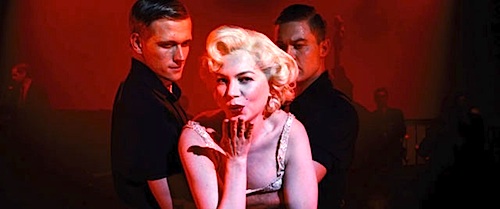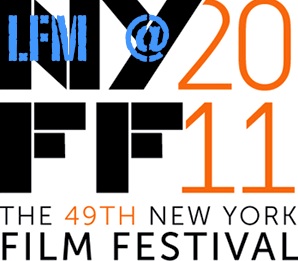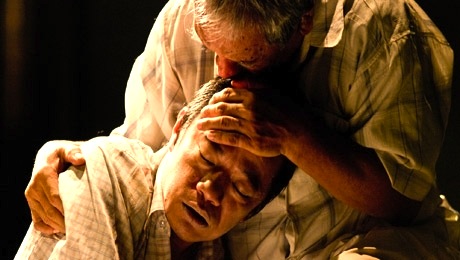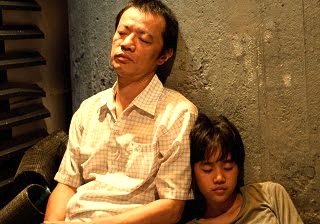
[Editor’s Note: LFM’s Govindini Murty has a piece today in The Atlantic, entitled: “Hey, Conservatives: It’s Safe to Go to the Movies Again.”]
By Govindini Murty. As our regular Libertas readers know, Jason and I have worked for over seven years to promote a greater diversity of voices in Hollywood. We’ve promoted hundreds of pro-freedom, pro-American, and conservative-friendly films, both through the Liberty Film Festival and the original Libertas blog, as well as the new Libertas Film Magazine. As I’ve said numerous times, we don’t do this because we want Hollywood dominated by conservative political propaganda any more than we want Hollywood dominated by liberal political propaganda. We do this because we care deeply about film and the arts and we feel that having a diversity of voices in our culture is crucial to maintaining the democratic values that make America great.
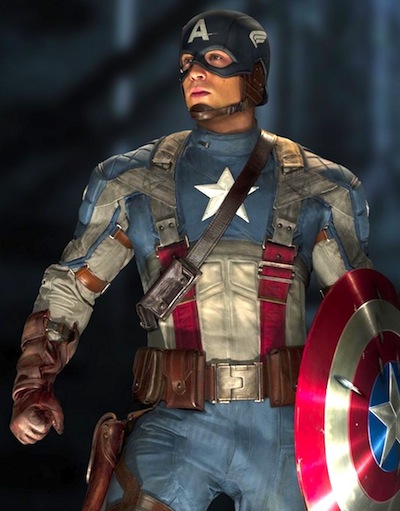
However, Jason and I have been very concerned over the years by the conservative establishment’s refusal to seriously engage in film and the arts. By “engagement” I don’t mean reviewing a film here or there or supporting the odd conservative political documentary. I mean genuinely and passionately engaging in film and the arts: funding and supporting filmmakers, artists, and creative people, devoting a significant portion of their media platforms to supporting the arts (even when they don’t directly tie into the conservative political agenda), taking real pleasure in creating beautiful, profound, and arresting artworks that imaginatively inspire people. Conservatives have enormous resources at their disposal to have a greater voice in the culture if they want to. That they fail to seriously engage in the culture year after year is deeply troubling. It undermines both the growth of the conservative movement, as well as the vibrancy of our culture, which needs both sides engaged in order to create art and entertainment that represents all Americans.
So, I’ve written a piece in The Atlantic today (see below) that examines the issue of why conservatives are so reluctant to support conservative-friendly films. As our readers know, when Jason and I relaunched Libertas, we were determined to positively promote films and creative artists. We were tired of just complaining about Hollywood. Conservatives have complained about Hollywood for years, and it never seems to accomplish anything. We decided that rather than give the site over to partisan politics and to obsessing over every left-wing Hollywood affront, we wanted to dedicate our time to promoting films and artworks that broadly affirm freedom and individualism. We were inspired by the genuine change we had seen in the film industry in the last two to three years, in which a greater number of pro-freedom films are suddenly being made. There’s plenty of room for hope and excitement, and yet I don’t see this hope and excitement translating into the rest of the conservative world. Conservatives in the media certainly know about these films because they do cover them (often with snarky and dismissive reviews) – they just refuse to take them as a positive sign of change that should be embraced.
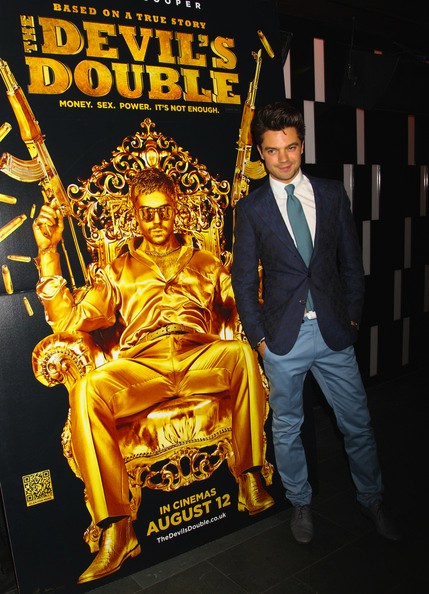
I hope my Atlantic piece (see below) will inspire some honest debate amongst conservatives. I didn’t write a partisan piece – I wrote a piece that objectively deals with the issues as they appear. I truly appreciate all of our conservative, libertarian, independent, and liberal readers here at Libertas who have shown their commitment to supporting the idea of freedom in film. You’re the good ones – you get it. I hope the message spreads to the rest of the public as well, because the culture is too important to be treated as a partisan whipping post. It deserves to be treated honestly, objectively – and always with respect for the artists who create the works that give our culture meaning.
•••
From The Atlantic:
The recent news that MGM’s remake of Red Dawn may finally reach theaters should be reason for conservatives to celebrate. The Los Angeles Times reports that MGM is in talks to sell Red Dawn to Film District (the company behind Ryan Gosling’s Drive), who will likely release the film in 2012. The original Red Dawn is one of the iconic films of the cultural right. Written and directed by John Milius, the 1984 film depicted a group of plucky teens who fight off a Soviet invasion of the U.S. This new Red Dawn, of which I’ve seen an early cut, features a similarly patriotic storyline—and stars one of Hollywood’s hottest young leading men, Chris Hemsworth (Thor). And even factoring in some controversial re-edits that change the villains from the communist Chinese to the North Koreans, the new Red Dawn seems like exactly the kind of pro-American action fare that should please cultural conservatives.
But will conservatives actually support Red Dawn when it comes out?
After years of feeling burned by Hollywood, today’s conservatives seem reluctant to go to the movies, even to see films promoting their own values. A number of right-of-center-friendly movies have been made in recent years—ranging from big-budget studio fare like the Transformers movies or art-house films like The Devil’s Double, to overtly political documentaries like The Undefeated—yet conservatives have responded with little enthusiasm to such films. Indeed, at times conservatives seem more interested in debating left-leaning works like Avatar or Fahrenheit 9/11 than in supporting movies friendly to their own cause.
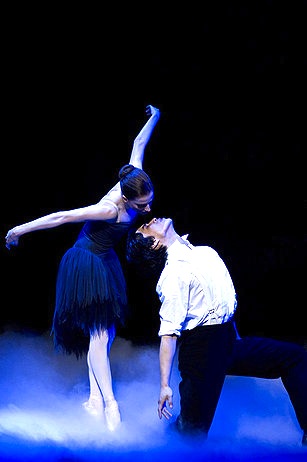
Witness the conservative public’s tepid response to two recent films on “conservative” subjects: the movie adaptation of Ayn Rand’s novel Atlas Shrugged, and the Sarah Palin documentary The Undefeated. Both films received extensive media coverage earlier this year. Fox News and the Fox Business Network ran numerous segments on each film (with John Stossel devoting an entire show on Fox Business to Atlas Shrugged), and both films were widely discussed on talk radio and in the print media. Yet when the films were released, they fared poorly at the box office. Atlas Shrugged made only $4.6 million on a reported budget of $20 million, and The Undefeated made only $116,000 on a reported budget of $1 million. Granted, both films received mixed reviews, at best. Nonetheless, as conservative film critic Christian Toto pointed out in a recent Daily Caller article titled “Why don’t conservatives support conservative films?,” the popularity of Rand’s original Atlas Shrugged novel and of Sarah Palin as subject matter should presumably have led to greater enthusiasm among conservatives for these projects. Yet they didn’t.
Stranger still, even when offered more popular or critically acclaimed films, many conservatives still seem reluctant to support them.
For example, a well-reviewed film recently appeared in theaters that offers an implied justification for the toppling of Saddam Hussein’s regime. The Devil’s Double tells the true story of Uday Hussein, Saddam Hussein’s gangster-like son, and his reluctant body double, Latif Yahia. Both roles in the film are played by rising star Dominic Cooper (Captain America), whose electric performance has made him one of Hollywood’s most sought-after leading men. The Devil’s Double depicts the Hussein regime pillaging and demoralizing Iraq’s people—and even includes flattering footage of George H.W. Bush and Dick Cheney. And despite its seemingly right-of-center politics, the film was screened to rave reviews at Sundance, with Roger Ebert even calling it a “terrific show” and praising Dominic Cooper’s “astonishing dual performance.”
>>>Read the rest of the article at The Atlantic here.
Posted on October 12th, 2011 at 5:32pm.
[Editor’s update: Many thanks to Kevin Roderick for mentioning Govindini’s Atlantic piece in his article “Left coast writers splash in the Atlantic” on LA Observed. Kevin runs one of the great LA sites and I urge you all to check it out.]
[Many thanks as well to Michelle Malkin’s Hot Air for linking to Govindini’s Atlantic article. Hot Air is always on top of the most interesting news and analysis, so be sure to check them out.]
[And of course, a big thank you as well to our friend Lars Larson. Lars is one of the best-informed and most articulate talk radio hosts out there (and rapidly rising, with his radio show carried in over 200 markets). Lars posted Govindini’s article on his site and he has always been supportive of Libertas Film Magazine and the cause of freedom in film.]

